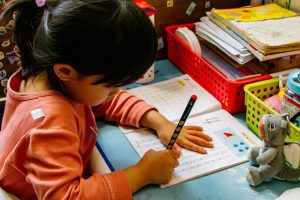Why Critical Media Literacy Must Be Taught Today
In the age of digital media, with information at our fingertips and constant bombardment from various news and social media outlets, critical media literacy has become an essential skill for individuals of all ages. This term may sound like just another buzzword, but it holds a profound meaning and importance in today’s society. Critical media literacy is the ability to analyze, evaluate, and understand the media messages that we receive every day. It’s about questioning the validity and biases of the information presented to us and being able to think critically and make informed decisions. With the rise of fake news and biased propaganda, it’s becoming increasingly evident that critical media literacy must be taught and prioritized in education. In this article, we will delve deeper into the significance of critical media literacy and why it must be taught today.
The Evolution of Media
Media has come a long way from the traditional means of television, newspapers, and magazines. With the widespread availability of the internet and social media platforms, anyone can publish and share information instantly, making it challenging to differentiate between what’s true and what’s not. The traditional gatekeepers of media, such as news agencies and publishing houses, can no longer control the flow of information. As a result, there is an overwhelming amount of misinformation, and it has become effortless for the spread of fake news.
This evolution of media has blurred the lines between fact and opinion, and individuals must possess the necessary skills to navigate and critically analyze the information presented to them. Critical media literacy empowers individuals to question the motives behind the production of media and to be aware of their own biases when consuming information.
The Importance of Critical Media Literacy
Critical media literacy is not just about being media savvy; it’s a crucial life skill that enables individuals to become active and responsible citizens. In a democratic society, the media plays a significant role in shaping public opinion and influencing political decisions. With critical media literacy, individuals are better equipped to understand the complexities of media messages and how they can shape collective beliefs and actions. It allows individuals to question authority and challenge the status quo, leading to a more informed and engaged society.
Beyond the political sphere, critical media literacy is also essential for personal and social well-being. The media portrays certain societal norms and ideals, which can negatively impact individuals’ self-esteem and behaviors. With critical media literacy, individuals can recognize and challenge these unrealistic standards and promote positive body image and healthy interpersonal relationships.
Teaching Critical Media Literacy
Despite the importance of critical media literacy, it’s not a widely taught subject in schools. The education system has yet to catch up with the rapid changes in media and technology. Instead, the focus is still on traditional literacy and numeracy skills. However, as the saying goes, “knowledge is power,” and it’s time for educational institutions to empower students with critical media literacy skills.
Teachers can incorporate critical media literacy into various subjects, like English, social studies, and even math. It’s about teaching students to think critically and analyze information from different sources. Asking questions like, “who created this message, and why? What is its purpose? What are they trying to convey? Is this reliable information?” are essential when consuming media, and these can be taught and reinforced in classrooms.
Conclusion
In conclusion, critical media literacy is vital in today’s society, and it must be taught in educational institutions. As individuals, we must be aware of the power and influence of media and develop the critical thinking skills to navigate through it. By teaching critical media literacy, we are equipping individuals with the necessary tools to be active and responsible citizens, promoting a more informed and democratic society. So let’s prioritize critical media literacy and empower future generations to think critically and make well-informed decisions.










